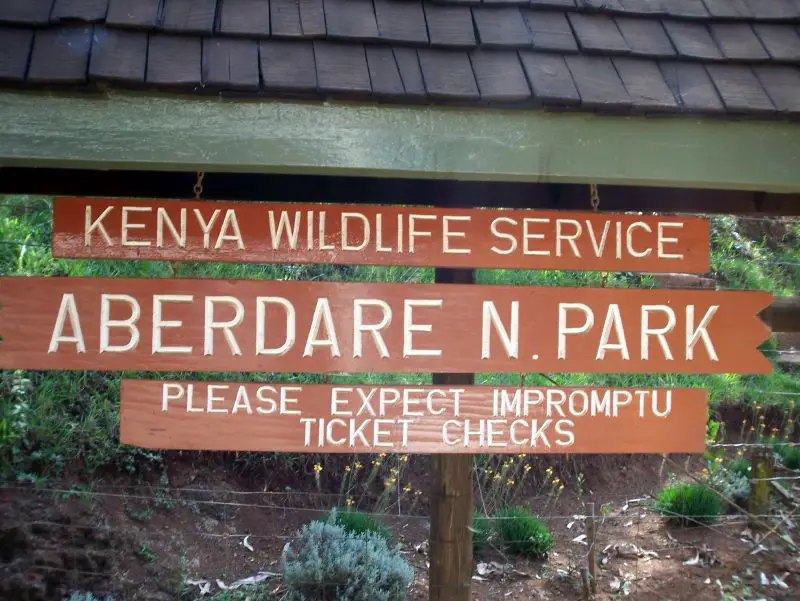Education in Thika Town, Kenya, is a diverse and evolving sector that plays a crucial role in the town’s development and the broader Kiambu County. Thika offers a range of educational institutions from pre-primary to tertiary levels, including public and private schools, technical institutions, and universities.
The town’s educational landscape reflects Kenya’s national education system while also addressing local needs and industrial demands. With its growing population and economic significance, Thika continues to see investments in education infrastructure and programs.
What levels of education are available in Thika?
Thika provides a comprehensive range of educational levels:
- Early Childhood Development Education (ECDE)
- Primary Education
- Secondary Education
- Technical and Vocational Education and Training (TVET)
- University Education
- Adult and Continuing Education
This range ensures educational opportunities for various age groups and academic needs.
What are the major educational institutions in Thika?
Thika hosts several notable educational institutions:
- Mount Kenya University (Main Campus)
- Thika Technical Training Institute
- Thika School for the Visually Impaired
- Chania Boys High School
- Thika High School
- Mary Hill Girls High School
- Mang’u High School (nearby)
- Thika Institute of Business Studies
These institutions cater to diverse educational needs and specializations.
How does the public education system function in Thika?
The public education system in Thika follows the Kenyan national structure:
- Free and compulsory primary education (8 years)
- Secondary education (4 years)
- Government-funded schools managed by the Ministry of Education
- Follows the national curriculum set by the Kenya Institute of Curriculum Development
- National examinations at the end of primary and secondary levels
- Teacher recruitment and management through the Teachers Service Commission
Public schools form the backbone of education in Thika, serving a large portion of the student population.
What role do private schools play in Thika’s education sector?
Private schools are an important component of Thika’s education landscape:
- Offer alternative curricula (e.g., British, American systems)
- Typically have better facilities and lower student-teacher ratios
- Cater to diverse educational philosophies and religious affiliations
- Provide education from pre-primary to secondary levels
- Some offer boarding facilities
- Generally perform well in national examinations
Private schools complement the public system and offer choices for parents and students.
How does higher education contribute to Thika’s development?
Higher education plays a significant role in Thika’s development:
- Provides skilled workforce for local industries
- Attracts students from other regions, boosting the local economy
- Facilitates research and innovation relevant to local needs
- Offers opportunities for adult education and professional development
- Contributes to the town’s status as an educational hub
- Collaborates with local businesses for internships and job placements
Institutions like Mount Kenya University are key drivers of higher education in Thika.
What is the state of technical and vocational education in Thika?
Technical and Vocational Education and Training (TVET) in Thika is growing:
- Thika Technical Training Institute is a major TVET provider
- Courses aligned with local industrial needs (e.g., manufacturing, agriculture)
- Emphasis on practical skills and employability
- Partnerships with local industries for internships and job placements
- Growing recognition of TVET’s importance in addressing skill gaps
- Increasing government support for TVET institutions
TVET plays a crucial role in preparing students for Thika’s industrial job market.
How does Thika’s education system compare to other Kenyan towns?
To contextualize Thika’s education sector, here’s a comparison with other Kenyan towns:
| Aspect | Thika | Nakuru | Kisumu |
|---|---|---|---|
| Major University | Mount Kenya University | Egerton University | Maseno University |
| Number of Secondary Schools | ~50 | ~80 | ~60 |
| Presence of National Schools | Yes | Yes | Yes |
| TVET Institutions | Strong presence | Moderate presence | Moderate presence |
| Special Needs Education | Specialized schools available | Limited specialized schools | Limited specialized schools |
| Proximity to Nairobi (education hub) | High | Moderate | Low |
This comparison highlights Thika’s strong position in education, particularly in higher education and TVET.
What challenges does the education sector in Thika face?
The education sector in Thika faces several challenges:
- Overcrowding in public schools
- Infrastructure limitations in some institutions
- Need for more trained teachers, especially in specialized fields
- Balancing traditional education with evolving job market needs
- Ensuring quality education across all institutions
- Addressing disparities between urban and peri-urban schools
- Integrating technology in education effectively
- Funding constraints for public institutions
Addressing these challenges is crucial for improving the overall quality of education in Thika.
How is special needs education addressed in Thika?
Thika has made strides in special needs education:
- Thika School for the Visually Impaired is a notable institution
- Some mainstream schools offer integrated programs for special needs students
- Growing awareness and support for inclusive education
- Specialized training programs for teachers in special needs education
- Collaborations with NGOs and government agencies to improve facilities
- Emphasis on vocational training for students with special needs
However, there’s still room for improvement in making education more inclusive and accessible.
What impact has technology had on education in Thika?
Technology is increasingly influencing education in Thika:
- Introduction of computer studies in schools
- Use of digital learning materials and e-learning platforms
- Improved internet connectivity in educational institutions
- Integration of educational management systems
- Online and distance learning options, especially in higher education
- Partnerships with tech companies for skills development
- Challenges in ensuring equitable access to technology across all schools
The adoption of technology aims to enhance learning experiences and prepare students for a digital future.
How does adult education feature in Thika’s educational landscape?
Adult education is an important aspect of Thika’s educational offerings:
- Evening classes for adults seeking to complete basic education
- Literacy programs in community centers
- Professional development courses offered by higher education institutions
- Vocational training programs for skills upgrading
- Distance learning options for working adults
- Collaborations with local industries for employee education programs
Adult education contributes to lifelong learning and skill development in the community.
What role do educational NGOs and community initiatives play in Thika?
NGOs and community initiatives contribute significantly to education in Thika:
- Providing scholarships and financial support to needy students
- Running supplementary education programs (e.g., after-school tutoring)
- Supporting infrastructure development in underfunded schools
- Offering mentorship and career guidance programs
- Promoting girls’ education and women empowerment initiatives
- Organizing educational events and competitions
- Supporting special needs education programs
These initiatives complement formal education systems and address gaps in service provision.
How does Thika’s industrial sector influence its education system?
Thika’s industrial sector significantly influences its education system:
- Demand for technical skills shapes TVET curricula
- Industry partnerships provide internships and job placements
- Corporate social responsibility programs support local schools
- Emphasis on STEM education to meet industrial needs
- Vocational training aligned with local manufacturing sectors
- Industry professionals often contribute as guest lecturers or advisors
This industry-education linkage aims to enhance employability and meet local economic needs.
What future developments are planned for education in Thika?
Several developments are planned or proposed for Thika’s education sector:
- Expansion of existing higher education institutions
- Establishment of new specialized technical training centers
- Increased integration of ICT in all levels of education
- Development of more inclusive education facilities
- Enhanced teacher training programs
- Strengthening of industry-academia partnerships
- Expansion of early childhood education centers
These developments aim to improve the quality and relevance of education in Thika.
How does education contribute to Thika’s overall development?
Education plays a crucial role in Thika’s development:
- Provides skilled workforce for local industries
- Enhances social mobility and economic opportunities
- Contributes to innovation and entrepreneurship
- Attracts investments in knowledge-based sectors
- Improves overall quality of life and social indicators
- Supports cultural preservation and community development
- Facilitates urban growth and modernization
The education sector is a key driver of Thika’s socio-economic progress and future prospects.
In conclusion, education in Thika Town, Kenya, is a dynamic and multifaceted sector that reflects both national educational policies and local economic needs. From primary schools to universities, and from vocational training to adult education, Thika offers a diverse range of educational opportunities.
While facing challenges such as infrastructure limitations and the need for continuous curriculum updates, the town’s education system plays a crucial role in its development.
The strong linkages between education and industry, the presence of specialized institutions, and the growing emphasis on technology and inclusive education position Thika as an important educational center in Kenya.
As the town continues to grow and evolve, its education sector will remain pivotal in shaping its future workforce, fostering innovation, and contributing to overall socio-economic development.



